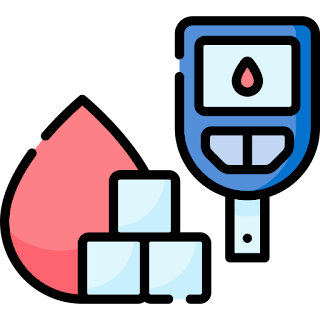Understanding Diabetes: Symptoms, Diagnosis, and Management

Diabetes is a chronic condition characterized by high levels of glucose (sugar) in the blood. It occurs when the body either doesn't produce enough insulin or can't effectively use the insulin it produces. Insulin is a hormone produced by the pancreas that regulates blood sugar levels and allows glucose to enter cells, where it's used for energy. Without enough insulin or when cells become resistant to insulin, glucose builds up in the bloodstream, leading to various health complications. In this blog post, we'll delve into the diagnosis of diabetes, including its symptoms, types, and management strategies. Symptoms of Diabetes: The symptoms of diabetes can vary depending on the type and severity of the condition. However, common symptoms include: Frequent urination: Excess glucose in the bloodstream leads to increased urination as the body tries to remove the excess sugar through urine. Increased thirst: Excessive urination can lead to dehydration, causing increased t...